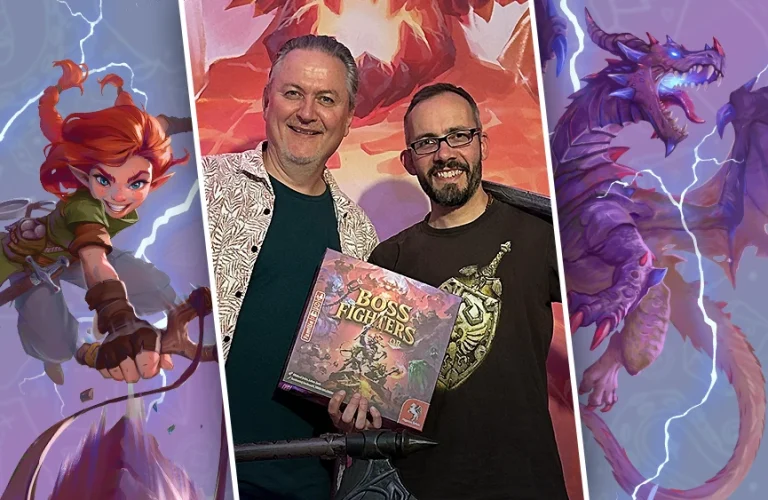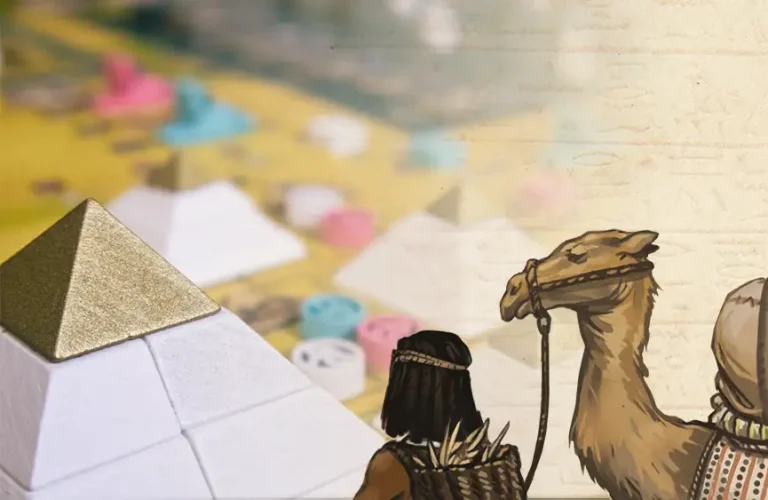The first Pegasus Designer Days took place in May of this year. During this two-day online event we invited several game designers from all over the world to present their game ideas in short video conferences to our editorial team. Now Klaus, the head of Pegasus’s publishing game department, tells us about the event, the opportunities and obstacles presented by the online-only presentation, and whether we can look forward to the first Designer Days games in the future.
Klaus, what conclusions can we draw after the first Designer Days? Was the event a success?
“Of course! During these two days, 181 game designers from all over the world presented us a total of 343 game ideas. Due to the short video conferences of only ten minutes each of the registered designers had the opportunity to present their game ideas. The time span seems to be short, but is usually enough for an experienced editor to get a rough overview of the game and its chances of success. The digital event concept also offers the advantage that there are no costs for accommodation, travel, etc. This allowed us to get in touch with game designers from Chile, Australia, Indonesia, and many other countries whom we would otherwise never have met at local events in Germany or Europe.”
Wow, 343 game ideas in two days! That sounds like a lot. How did you manage that and how many exciting game ideas did you find?
“All editors of the internal Pegasus Spiele editorial team were involved (Sebastian, Martin, Stefan, André, and me). We also received support from the editorial team of Deep Print Games, who were responsible for the gamer´s games as well as from Claudia Geigenmüller and her colleague from Mühlenkind, who had supervised the children´s games. So we had “just” 228 more titles to work on internally. The goal was for each editor to select a maximum of three of the games presented to him that he liked so much that he wanted to request them as playable prototypes. Finally, we requested about 30 prototypes. We’ve also given feedback to some designers about what we think they could change on their prototype in the future, so maybe we’ll see some of the developed prototypes here again.”
What will happen to the 30 titles that you are testing now?
“Currently we are in the testing phase. That means we play the titles with different test rounds to see if people like them. In this phase a picture of what the prototype could one day become is usually already formed. Optics and materials are still of secondary importance at this point. These are aspects we don’t think about in detail until the decision for publishing a game is final. If a game passes this test, we will then fine-tune it in cooperation with the designer. And finally, the title could be published in the Pegasus box. So you definitely can look out for them! :)”
Have you received any feedback from the designers on the Designer Days and if so, how did it turn out? In your opinion, what are the challenges but also the opportunities of digital game presentation?
“We have received very positive feedback throughout. Many designers considered this event to be a very good idea, because the Designer Days not only were a “compensation” for the cancelled events, but they also offered a very unique and parallel presentation format for prototypes. One of the reasons for this was certainly that we looked at all registered game ideas. Everyone who wanted to present one or more game ideas to us was given the opportunity to do so. However, we still have to see if we can realize this again at the following Designer Days. But this time we wanted to give this chance to as many designers as possible.
Also, most of the game designers were very professional during the game presentation. Many of them had already prepared the prototype and the right camera settings. Others had even implemented their games on platforms like Tabletopia or Tabletop Simulator. The biggest disadvantage compared to a face-to-face-meeting was that we could not test any interesting game idea immediately. So we couldn’t check if the initial interest would continue throughout a game. But even at fairs we usually have very busy schedules and even in the best case only little time to play. A more detailed analysis of the game idea must therefore always be carried out afterwards during a whole series of testing rounds with the entire team. On the other hand, one of the advantages of the Designer Days was that designers had to think about how best to present their games in the shortest possible time and concentrate on the essentials. Not getting to the core of the game still is one of the most common mistakes.”
Are there any plans for repeating the Pegasus Designer Days after the success of the first Designer Days?
“Yes, we are already planning the Pegasus Designer Days in Fall, 22-24 October. Registration will be open soon…(www.pegasus.de/en/community/events/pegasus-designer-days/) In addition, online events and online fairs currently play a huge role at Pegasus. This is also shown by the CONspiracy, which will take place for the fourth time from November 27th to 29th 2020. Nowadays, online events are no longer just a way for us to replace cancelled events and meetings, but an additional option. We currently are considering the digital presentation of game ideas as a standard service alongside personal meeting with designers. Therefore, a repetition of the Designer Days is not unlikely.”
Questions, comments, feedback? Share your thoughts with us at blog@pegasus.de






